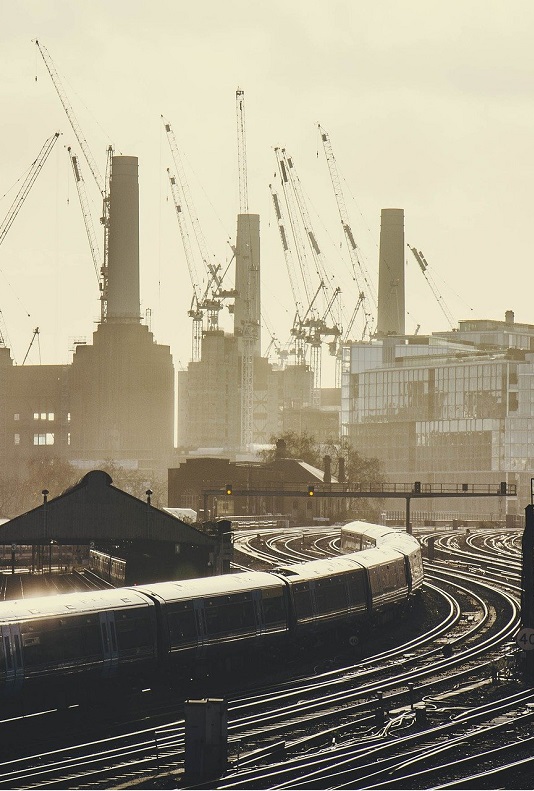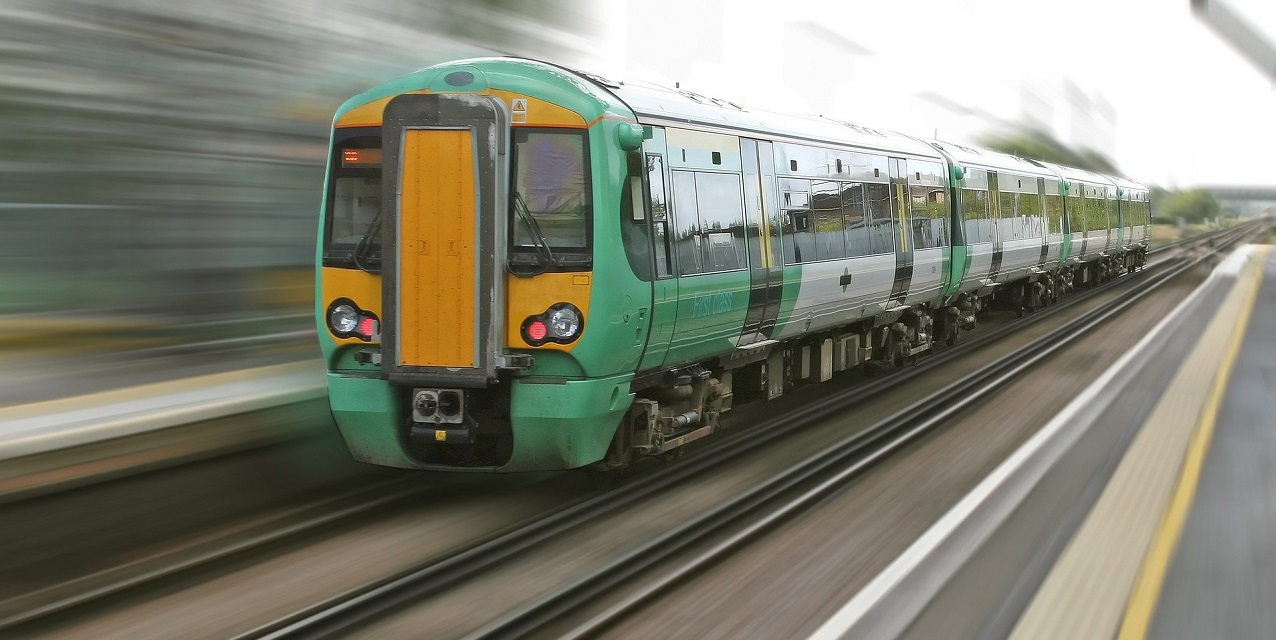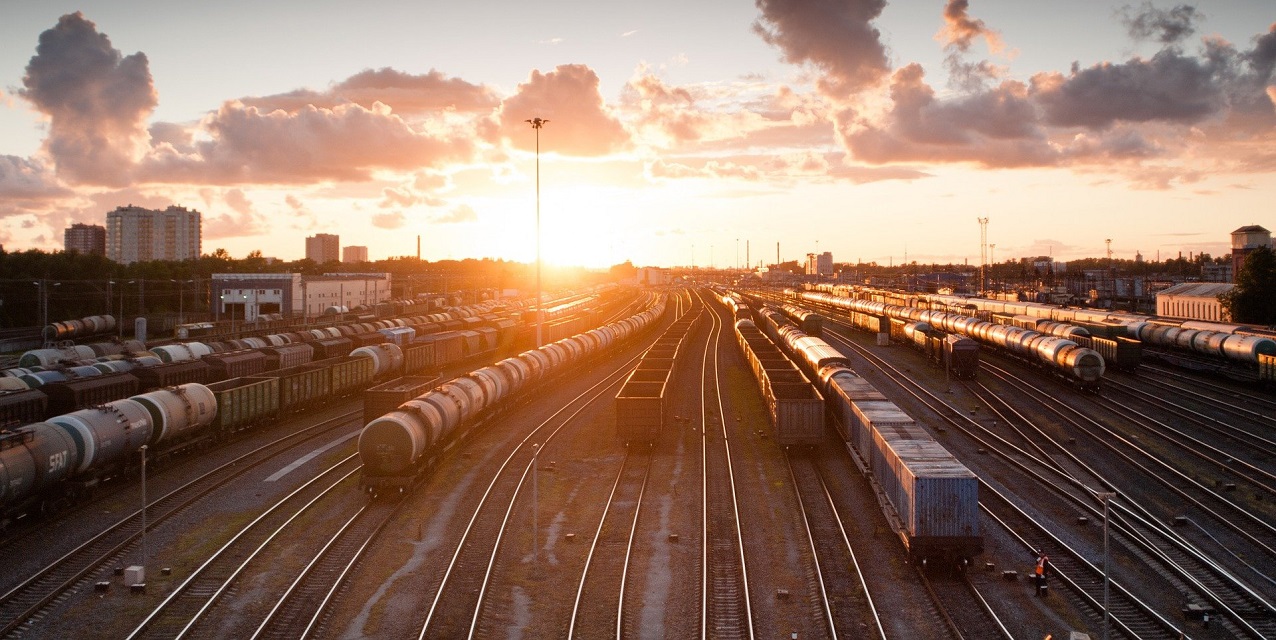ESG - now SOCOTEC - travelled to Austria to provide crucial air monitoring services and to support Network Rail in meeting regulatory requirements.
Summary of works
Client: Network Rail
Location: Austria

Case Study
Maintaining Health and Safety Standards

The UK rail sector has always prided itself on providing a safe environment for passengers, as well as those working both in stations and behind the scenes maintaining the track. Achieving this goal by managing hazards, including those posed by poor air quality, has always been a top priority.
This is the case for Network Rail, which is committed to ensuring the highest standards of safety for its workers, including taking steps to optimise air quality throughout its operations. The organisation takes care of thousands of employees as they provide vital rail maintenance to keep the UK’s trains running safely.
Network Rail recently purchased a fleet of mobile maintenance trains (MMTs) – self-propelled units designed to travel on the track being worked on to provide a safe and well-lit environment for workers, protecting them both from the weather and passing trains. Network Rail needs to be sure that the air inside the MMTs will remain as clear of dust and fumes as possible in order to provide a high quality, protective workplace environment.
The UK rail sector has always prided itself on providing a safe environment for passengers, as well as those working both in stations and behind the scenes maintaining the track. Achieving this goal by managing hazards, including those posed by poor air quality, has always been a top priority.
This is the case for Network Rail, which is committed to ensuring the highest standards of safety for its workers, including taking steps to optimise air quality throughout its operations. The organisation takes care of thousands of employees as they provide vital rail maintenance to keep the UK’s trains running safely.
Network Rail recently purchased a fleet of mobile maintenance trains (MMTs) – self-propelled units designed to travel on the track being worked on to provide a safe and well-lit environment for workers, protecting them both from the weather and passing trains. Network Rail needs to be sure that the air inside the MMTs will remain as clear of dust and fumes as possible in order to provide a high quality, protective workplace environment.
In 2015, ESG undertook comprehensive air monitoring within the MMTs on behalf of Network Rail at the manufacturer’s site in Austria, to gauge their air quality levels.
Working Under Cover
During maintenance works, the cutting, grinding and welding of rail and other track components can release potentially toxic fumes. In addition, drilling in concrete sleepers, or the stone ballast that forms the track bed, can lead to a build-up of dust around the site where work is being carried out.
The MMTs are designed to operate either with their sides fully deployed for optimum protection, or with the sides in an open position, to provide additional space for particular tasks or to allow large equipment to be brought inside.
However, in any enclosed space, dust and fumes can become a significant health and safety issue, unless suitable precautions are taken. If there is insufficient ventilation, these airborne materials can build up very quickly, increasing health risks. Exposure to fumes can cause irritation to eyes, nose and chest in the short term, while dust can lead to issues with breathlessness. Long-term, both hazards can result in chronic respiratory problems in workers.
Under the Control of Substances Hazardous to Health (COSHH) Regulations, organisations in all sectors have a legal duty to assess and minimise the risks posed to employees from dust, fumes and other hazardous substances.
ESG supported Network Rail in meeting regulatory requirements and protecting its workers by monitoring air quality in its new MMTs to ensure the ventilation systems are capable of minimising internal dust and fume levels.
Getting Under Way
With ESG’s experience of providing specialist exposure monitoring services to the rail industry, the organisation was engaged to monitor air quality in Network Rail’s new MMTs.
ESG travelled to Austria and began working on the project in March 2015. The support provided included air monitoring by occupational hygienists, who investigated internal dust and metal fume levels produced by welding and similar heavy-duty work. This monitoring was crucial to ensure the MMTs were fit for purpose and offered sufficient ventilation to facilitate high-intensity maintenance, with multiple welds and other tasks being carried out simultaneously.
Monitoring for Health and Safety
ESG provided comprehensive on-site air monitoring for dust and metal fume concentrations before, during and after dust and fume-producing work, inside each MMT with the sides closed, during its commissioning processes.
ESG also performed monitoring on each worker within the MMTs during all work activities. Static monitoring was undertaken at a single location in each unit to determine background air quality levels for other operatives working in the unit at the same time.
Tests were repeated for each MMT with the sides fully opened to provide useful air quality comparisons in all possible operational scenarios.
All of the work was completed in-situ with the MMTs deployed on test tracks near the manufacturer’s Austrian base, navigating a constantly evolving on-site work schedule for individual units, often with limited time to set up test equipment. ESG’s hygienists liaised regularly with Network Rail to coordinate with the client’s teams, maximising monitoring efficiency and ensuring optimum test precision.
ESG’s analysis of the results demonstrated that the ventilation systems within all the units were effective enough to minimise internal dust and metal fume levels, even with their sides fully extended and during high-intensity metal working operations.
Thanks to ESG’s monitoring, Network Rail has the confirmation it needs that its MMTs comply with UK workplace exposure limits, and maintain its high standards of worker health and safety. Network Rail can also benefit from reduced maintenance project timescales and operations costs, as well as minimised disruption to the railway, as the MMTs will protect workers from passing trains and poor weather.
Protecting Workers
Nicola Atkinson, rail account manager, Built Environment Services, at ESG, concluded: “Whatever the nature of your business and the service it provides, you need to make sure you create a safe and secure environment for your team to work in, which includes ensuring high air quality. This is particularly important in the rail sector, with the heavy machinery used and difficult work that has to be undertaken in challenging outdoor conditions.
“By developing a flexible approach to monitor the MMTs, we have been able to provide Network Rail with detailed information about the performance of its new units, all without compromising on the efficiency of the company’s commissioning process. As a result, Network Rail has the information it needs to continue to maintain its high standards of safety for employees well into the future.”





